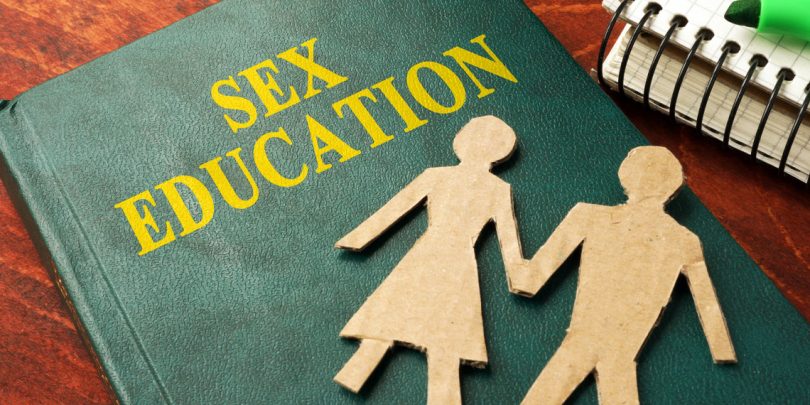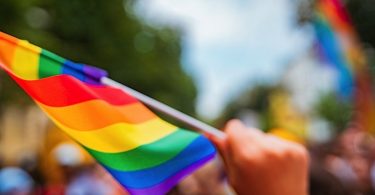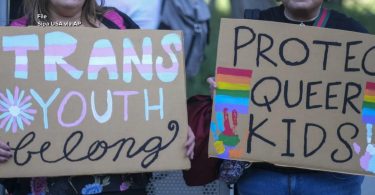Parents who believe in “sexuality blindfolding,” the idea that avoiding conversations about LGBTQ+ identities can reduce bias, are less likely to talk to their children about these topics, a new study reveals. Published in Social Psychological and Personality Science, the research shows that these parents also support delaying LGBTQ+ discussions in schools, reflecting the significant influence of this ideology on both home and educational settings.
The researchers conducted this study in response to the growing number of laws in the United States that restrict discussions of gender identity and sexual orientation in schools. In 2022, over 238 bills targeting LGBTQ+ topics were introduced across the country, many aimed at preventing classroom discussions of sexual orientation and gender identity.
These laws often cite the need for “age-appropriate” discussions and claim to protect parents’ rights to decide what their children are exposed to in schools. However, no previous research had examined how parents’ beliefs about when it is appropriate to discuss LGBTQ+ topics with children might impact both their conversations at home and their support for such restrictive laws.
Given the critical role parents play in educating their children, the researchers aimed to fill this gap. Understanding how and when parents discuss LGBTQ+ topics is important because research has shown that inclusive education helps foster empathy and understanding, reduces bullying, and promotes healthier identity development among children of all gender identities and sexual orientations.
To investigate these questions, the researchers conducted two studies. In the first study, they recruited 503 parents with children between the ages of 5 and 10. The sample included both LGBTQ+ (187 participants) and cisgender-heterosexual (316 participants) parents.
Participants were asked to indicate what age they believed it was appropriate for children to learn about various LGBTQ+ topics, such as same-sex relationships and gender-neutral pronouns. Parents used a sliding scale ranging from 0 to 18 years to make their judgments. Additionally, they were asked how often they discussed these topics with their children, using a scale from 1 (never) to 7 (very frequently).
The researchers also measured the parents’ anticipated comfort level in having these conversations, as well as their endorsement of the ideology known as sexuality blindfolding, which suggests that avoiding discussions of LGBTQ+ topics can prevent bias (e.g., “Talking about sexual orientation creates tension in workplace or school settings” and “It is best to avoid talking about sexual orientation to prevent bias against LGBQ groups”).
The second study, which focused solely on cisgender-heterosexual parents, used a similar approach but included more detailed questions about participants’ support for restrictive education policies. A total of 334 cisgender-heterosexual parents participated, all of whom had children between the ages of 5 and 10.
The researchers found that LGBTQ+ parents, on average, believed that LGBTQ topics should be introduced to children at a younger age compared to cisgender-heterosexual parents. The difference between these groups was notable — around three years (6 years old vs. 9 years old). This suggests that LGBTQ+ parents are more comfortable with early discussions of identity and diversity, likely due to their personal experiences and a desire to instill pride and understanding in their children.
A key finding was the apparent influence of the sexuality blindfolding ideology. Parents who endorsed this ideology were more likely to believe that LGBTQ+ topics should be introduced later in childhood, reported fewer conversations about these topics with their children, and felt more uncomfortable discussing them.
Sexuality blindfolding ideology was a strong predictor of support for restrictive LGBTQ+ education policies, such as laws that limit when and how children can be exposed to LGBTQ+ content. This was especially true for parents who were exposed to articles framing such policies as part of a “parents’ bill of rights,” which emphasizes parental control over what children are taught in schools.
These studies underscore the importance of understanding parents’ beliefs about LGBTQ+ topics, as these beliefs influence both personal conversations at home and broader support for educational policies. But there are some caveats to consider. First, it relied on self-reported data, which can introduce bias, as participants may present more socially desirable attitudes or behaviors. The sample was also predominantly White, which limits the generalizability of the findings to more diverse racial and ethnic groups.
Future research could address these limitations by recruiting a more racially and ethnically diverse sample to explore how cultural backgrounds influence beliefs about LGBTQ+ topics. Longitudinal studies could also examine how parents’ beliefs and conversations evolve over time, particularly in response to ongoing exposure to restrictive education policies.
The study, “Predictors and Implications of Parents’ Beliefs About the Age Appropriateness of LGBTQ+ Topics for Children,” was authored by Kimberly E. Chaney, Leigh S. Wilton, Thekla Morgenroth, Rebecca Cipollina, and Izilda Pereira-Jorge.







